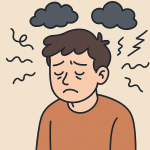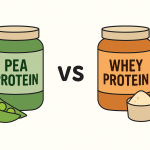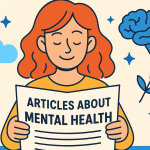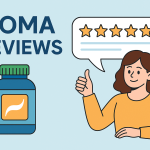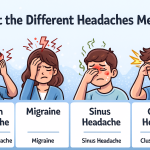Have you ever felt overwhelmed or in crisis and wondered where to turn for immediate help? The 988 mental health lifeline is a vital resource available 24/7 to provide compassionate, confidential support for anyone facing mental health challenges or emotional distress. This easy-to-remember three-digit number connects callers to trained crisis counselors who are ready to listen and help no matter the time or place.
In this comprehensive guide, you’ll understand what 988 mental health support offers, current trends in crisis intervention, practical tips for mental wellness, and how to navigate help for yourself or loved ones.
What Is 988 Mental Health Hotline?
The 988 mental health number is the nationwide dialing code in the U.S. and Canada dedicated to mental health crisis support. Launched in July 2022, it replaces the longer National Suicide Prevention Lifeline number to make help more accessible.
Purpose: Connect callers and texters experiencing suicidal thoughts, emotional distress, or substance use crisis with expert counselors.
Availability: 24 hours a day, 7 days a week, with confidential and judgment-free service.
Access methods: Call, text, or chat online for free support.
This service is a critical part of the mental health crisis care continuum, aiming to reduce emergency room visits and enhance timely intervention.
How 988 Works: What to Expect
When you dial or text 988, you’ll experience a streamlined process designed to ensure help reaches you quickly:
Step 1: Callers hear a prompt to select options for veterans, Spanish-speaking services, or local support centers.
Step 2: Wait briefly while connected to a live counselor.
Step 3: Counselors greet you warmly and ask about your safety, listening attentively to your concerns.
Step 4: You receive compassionate support and guidance, including resources or referrals as needed.
This process applies to texting and online chat services as well, providing a versatile and flexible support system.
Current Trends in Mental Health Crisis Care
Increased Awareness and Use of 988
Since its launch, 988 has become increasingly recognized as the go-to resource for mental health crises. Campaigns promote awareness across communities to reduce stigma and encourage early help-seeking behaviors.
Expansion of Community-Based Crisis Response
Many areas are integrating mobile crisis teams and local crisis stabilization services funded by 988 grants, shifting from hospital reliance to timely, on-site interventions.
Technology Integration
The combination of call, text, and chat options reflects the need for accessible support for younger populations and those who may prefer less direct communication.
Mental Wellness Tips to Prevent Crisis
While 988 is there in urgent moments, prioritizing daily mental wellness can help reduce crisis risk:
1. Develop Healthy Sleep Habits
Aim for 7–9 hours of restful sleep to regulate mood and cognitive functioning.
2. Stay Connected Socially
Regular contact with trusted friends or family supports emotional resilience.
3. Practice Mindfulness or Relaxation
Techniques like meditation or controlled breathing reduce stress and anxiety.
4. Seek Professional Help Early
Therapy or counseling can prevent escalation of mental health challenges.
5. Maintain Physical Health
Exercise, balanced nutrition, and hydration aid overall brain health and mood balance.
How to Support Someone in Crisis
If someone you know is struggling, these are ways you can help while waiting for 988 support:
Listen without judgment, offering a calm space for expression.
Ask directly about suicidal thoughts—this can provide relief and clarification.
Stay with them or ensure they are not left alone if the risk seems high.
Encourage calling or texting 988 together for immediate connection.
Remove access to harmful means if feasible (medications, weapons).
988 Mental Health and Emergency Services
988 aims to reduce unnecessary emergency department visits by providing immediate crisis intervention. However, if there is imminent danger, 911 emergency services should still be contacted to ensure safety.
Communities are encouraged to coordinate 988 services with mobile crisis teams and follow-up care providers to create a holistic safety net.
FAQs on 988 Mental Health
1. Who can call 988?
Anyone facing a mental health, substance use, or emotional crisis can call, text, or chat with 988 for support.
2. Is 988 confidential?
Yes. Conversations with 988 counselors are confidential, except where safety concerns legally require disclosure.
3. How is 988 different from 911?
988 is specifically for mental health crises and suicide prevention, while 911 handles emergencies generally, including threats to life or property.
4. Can I text 988 if I can’t speak?
Yes, texting and online chat options are available for those who prefer or require non-verbal communication.
5. Is 988 available outside the U.S.?
988 is primarily a U.S. service but has been launched in Canada with similar access. Other countries have their own crisis hotlines.
Final Thoughts: 988 Is Here to Help
The introduction of 988 mental health has transformed crisis help into a more accessible, supportive, and compassionate system. Whether you are in distress or supporting someone who is, this lifeline offers a vital connection to understanding and hope—anytime, anywhere.
Remember, mental health is a journey, and help is just a call, text, or chat away. Reach out to 988 in crisis or use the wellness tips shared here to build strength every day.
Take a step toward mental wellness now by saving the number 988—it could save a life, maybe yours.


